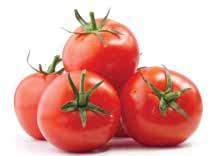
4 minute read
Vegetables NZ Inc
MAGICAL BUS TOUR
WITH GOVERNMENT FRIENDS
Words by Antony Heywood : General Manager, Vegetables New Zealand Inc.

Stuart Davis, LeaderBrand Pukekohe, explains the technology to vacuum cool lettuce before sending it to market. This technology allows the lettuce to last longer on the shelf, giving a better quality customer experience
Every year, in an inspired engagement project led by Onions New Zealand, we invite government on a magical bus tour of Pukekohe and Hawke’s Bay.
Why is it magical? To quote the tour guide:
“It is important as an industry good body to assist with helping both growers and government learn a little more about one another’s priorities and systems. It gives officials the opportunity to talk to vegetable growers directly and understand the complexities and challenges that growers face. It also presents the opportunity to ask questions in context to the growers’ environment.”
In government’s capacity as a watchdog for the public, it will make decisions based on the best interests of NZ Inc. It is the product groups’ and Horticulture New Zealand’s task to balance the ledger and ensure growers’ viewpoints are recognised. To ensure our industry is earning its social licence, the grower story needs to be told. What better way than to go out to farms and show how things are done. We would like to thank the following growers for their input on the day: • Kylie Faulkner and Stuart Davis from LeaderBrand • Herman and the team from ENZA Zaden • AS Wilcox’s marketing and supply chain team • Bharat Jivan Each of these growers told the group their story, and about some of the challenges they are experiencing.
The following themes were common in much of the discussion. 1 Vegetable crops are different from other crops due to the complexities of rotations. 2 Labour is still a concern for the vegetable sector. The loss of Recognised Seasonal Employer (RSE) scheme workers and working visa holders is having an effect on harvest dynamics and food supply. 3 Growers are passionate about their land and have been guardians for multiple generations. The loss of good vegetable growing land will be a loss for all
New Zealanders and our food supply. Pukekohe was identified 100 years ago as the best place to grow leafy greens as it does not have winter frost. 4 Growers are conscious of their inputs and emissions (nitrogen and carbon) and have mitigations in place to reduce these to industry best practice. 5 The government can help growers to become better guardians of the land by working with them to meet the new limits on freshwater and other emissions.
6 The Pukekohe Vegetable Hub is a significant contribution to GDP (Gross Domestic Product) (through supply of vegetables to Auckland and employment for the Franklin district), but growers have not had a lift in profit margin for more than eight years. The rise in the minimum wage and cost of environmental compliance needs to be balanced against a mechanism for more equitable pricing of quality vegetables. 7 Growers are often caught in the middle on supply chain shortages, like product crates.
When a decision was made to change from one type of crate to another type, which needed to imported, this caused a shortage in crates. This is frustrating and costly for growers. If a grower is unable to harvest at peak times, the produce will fail quality parameters and it will remain in the field or get dumped. Any shortage or constraint in the supply chain has a ripple effect.
The grower will have the highest risk in the supply chain due to produce perishability. 8 New Zealand produce is recognised for its quality and reliability. Exporting vegetables is profitable if growers can access markets. Growers need assured channels to export markets that are accessible and equitable for free trade. Free Trade Agreements are required for growth in our industry. Vegetables New Zealand Inc (VNZI) is working to make the above points apparent at all government levels. HortNZ is working with the Ministry of Social Development to try and ensure Pukekohe has enough labour. The Commerce Commission is undertaking a grocery market review, which will throw light on the equity within the supply chain. Market access issues are being tackled by a number of product groups, including VNZI, with much of the heavy lifting undertaken by Onions New Zealand, which has a strong market access focus. There is real benefit in telling the grower story to government. The end result will be a more resilient and viable industry.
SUBSCRIPTIONS
IF IT’S FRESH PRODUCE IN NEW ZEALAND, WE HAVE IT COVERED.
Reaching all levy-paying growers of vegetables and berryfruit in New Zealand, in print and online.
ONLINE $95 for 11 issues, $12 for one issue PRINT New Zealand resident NZ$125 (GST inclusive) Australia & Pacific NZ$210 (airmail delivery) Rest of the World NZ$220 or US equivalent (airmail)
VOL 77 | NO 04 | AUGUST 2020
HORTICULTURE NEW ZEALAND
PUKEKOHE FOCUS
PAGES 30-35
IN THIS ISSUE
10 FARM ENVIRONMENT PLAN UPDATE 30 VITAL WATER GOING OUT TO SEA 42 FUNDING BOOST FOR AGRITECH










